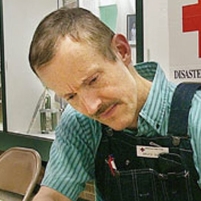Scientists Present Evidence that 2001 Anthrax Case Should Not be Closed
Tuesday, October 11, 2011
 Bruce Ivins
Bruce Ivins
Federal investigators should consider reopening the 2001 anthrax case, according to a new assessment of the attack by three scientists. Anthrax spores, which were sent through the mail to media and political offices, killed five people and sickened 17 others.
In a coming issue of the Journal of Bioterrorism & Biodefense, the scientists, anthrax authority Martin Hugh-Jones, biologist Barbara Hatch Rosenberg, and chemist Stuart Jacobsen, argue that distinctive chemicals, plus the presence of tin, found in the anthrax spores indicate that the man accused of carrying out the attack, U.S. Army biodefense expert Bruce Ivins, may not have acted alone or been involved at all.
After reviewing the Federal Bureau of Investigation (FBI)’s documents on the case, The New York Times reported that FBI experts focused on tin for a while early in the investigation, before dropping that aspect of it.
Alice Gast, the chairwoman of a National Academy of Science panel that spent more than a year reviewing the FBI’s scientific work, and Nancy Kingsbury, the director of a new review by the Government Accountability Office, said the paper raises significant questions that should be addressed.
The Department of Justice, however, is sticking to its assertion that the spores used in the mailings were produced at Fort Detrick, Maryland, where Ivins worked. Federal investigators insist Ivins grew and dried the anthrax spores himself.
On July 29, 2008, Ivins killed himself after the FBI zeroed in on him as the only suspect in the bioterrorism case. The FBI was never able to produce any physical evidence linking Ivins to the crime, but closed their investigation in February 2010, claiming that a matrix of evidence, including Ivins’ eccentric and suspicious behavior, would have been enough to convict him in a court of law.
-Noel Brinkerhoff
Scientists’ Analysis Disputes F.B.I. Closing of Anthrax Case (by William Broad and Scott Shane, New York Times)
New Evidence Adds Doubt to FBI’s Case Against Anthrax Suspect (by Stephen Engelberg, ProPublica, Greg Gordon, McClatchy, Jim Gilmore and Mike Wiser, PBS Frontline)
Postal Worker Exposed to Anthrax in 2001 Still Not Reimbursed for Items Taken Away for Testing (by Noel Brinkerhoff, AllGov)
FBI Tries to Delay Release of Anthrax Attack Report (by Noel Brinkerhoff, AllGov)
- Top Stories
- Unusual News
- Where is the Money Going?
- Controversies
- U.S. and the World
- Appointments and Resignations
- Latest News
- Trump Changes Name of Republican Party
- The 2024 Election By the Numbers
- Bashar al-Assad—The Fall of a Rabid AntiSemite
- Trump Announces He Will Switch Support from Russia to Ukraine
- Americans are Unhappy with the Direction of the Country…What’s New?






Comments